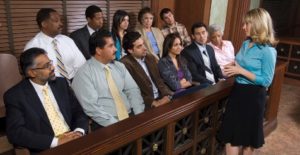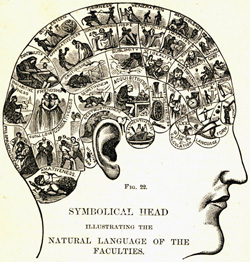The court affirmed the trial court’s judgment in this commercial real estate lawsuit. Jarvis provided a loan through its loan servicer, NAC, to CAS for the purchase of an apartment complex. The loan documentation identified NAC as the “servicer” and the lender as Jarvis “c/o” NAC. CAS made monthly loan payments directly to NAC, who then disbursed them to Jarvis. CAS later sold the property to K&E through Stewart Title. Stewart Title paid the loan payoff amount directly to NAC for payment to Jarvis, as NAC had done for two other loan payoff transactions to Jarvis in the past. But in this case, NAC did not provide the funds to Jarvis and instead purported to continue making CAS’s monthly payments without notifying Jarvis of the sale. When NAC stopped making those payments, evidently due to insolvency, Jarvis learned of the property sale and sought to foreclose on the property.
K&E filed a declaratory action asserting that the loan was paid off and seeking to prevent foreclosure. Jarvis filed a third-party petition against CAS, Stewart Title asserting negligence and breach of contract claims against Stewart Title for making the loan payment to NAC instead of directly to Jarvis. Jarvis also sought a declaration that the loan was not discharged and sought to quiet title. At trial, Jarvis moved to exclude evidence of the other loans serviced by NAC in which NAC received the payoff amount and disbursed it to Jarvis, which was denied. Based on this evidence, the trial court found that Jarvis and NAC established a procedure where NAC received payoff funds and disbursed them to Jarvis and that NAC had actual and apparent authority to accept the payoff amount here. It entered judgment for K&E, declaring that the loan was fully paid, enjoining Jarvis from attempting to foreclose on the party, and awarding K&E attorney’s fees. The court also granted K&E and Stewart Title summary judgment on Jarvis’s negligence and breach of contract claims and severed out Jarvis’s claims against CAS.
On appeal, Jarvis argued that the trial court erred by denying its motion to exclude because the loan documents dictated the relationship between the parties, and thus the parol evidence rule precluded the evidence of Jarvis and NAC’s other course of dealings. The court held that the loan documents indicated that NAC had authority to act for Jarvis, but the scope of that authority was unclear. Thus, parol evidence showing the scope of NAC’s authority to accept loan payoff amounts and not contradicting the terms of the documents was not barred. Additionally, the evidence was sufficient to show that NAC had implied actual authority to accept the loan payoff. This holding also disposed of Jarvis’s claims against Stewart Title, whose transfer of funds to NAC constituted payment to Jarvis rather than a breach of any duty to Jarvis, and Jarvis’s declaratory action because its lien and deed of trust on the property was discharged. Finally, K&E’s attorney’s fees recovery was warranted because the UDJA permits a declaratory action brought to invalidate a real estate note, as well as any lien securing the note.
Jarvis v. K&E RE One, LLC, et al., 05-11-00341-CV
 Wakefield, a party to a civil lawsuit, disputed a judgment against him in favor of Rubio, forensic expert retained by his counsel in that lawsuit. Wakefield argued that no evidence established a contract between him and the expert. But the identify of his counsel was undisputed (thus providing some evidence of agency), and additional evidence showed that he ratified his counsel’s dealings with the expert, establishing that he chose to proceed:
Wakefield, a party to a civil lawsuit, disputed a judgment against him in favor of Rubio, forensic expert retained by his counsel in that lawsuit. Wakefield argued that no evidence established a contract between him and the expert. But the identify of his counsel was undisputed (thus providing some evidence of agency), and additional evidence showed that he ratified his counsel’s dealings with the expert, establishing that he chose to proceed:



